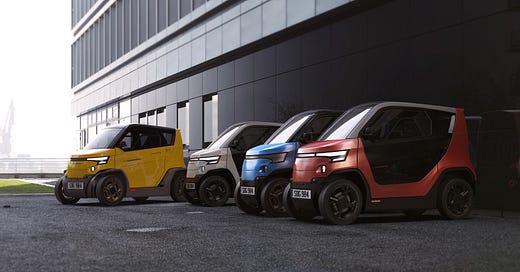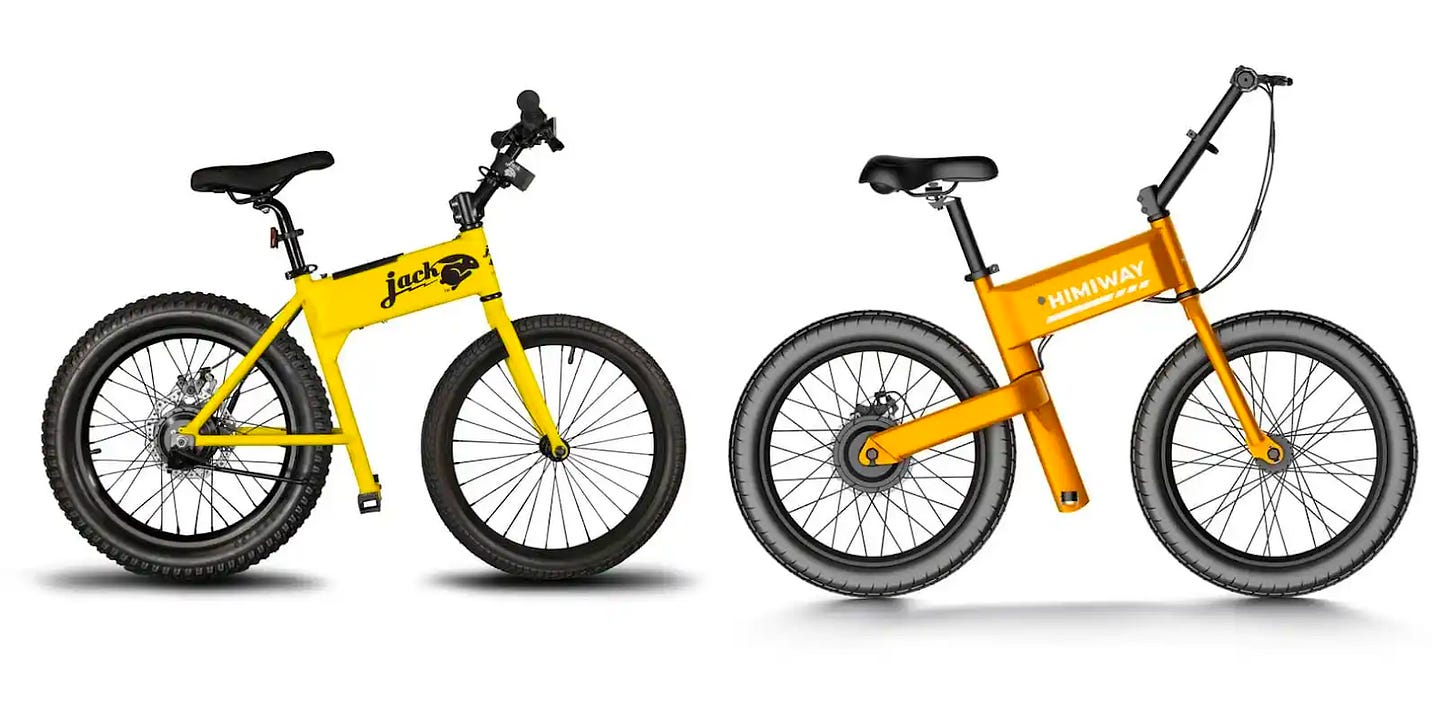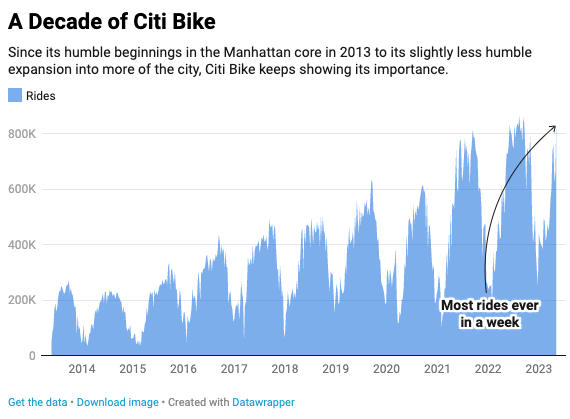🚙 The Other Pandemic...
Plus, Bolt predicts first profitable year, China’s delayed bike boom, and VinFast’s upcoming SPAC.
FYI: Micromobility Europe is right around the corner on June 8-9. Here’s everything you need to know to prepare for our global summit in Amsterdam:
🎟 Tickets are currently on sale for nearly 50% off GA pricing. The biggest players in our industry will be there. Make sure you’re there too. Tickets.
💛 Familiarize yourself with our stacked lineup of parties, speakers, panels, product debuts, and networking events. Program.
🎪 Want to exhibit? We still have a few booths left. If you’re interested in driving momentum with manufacturers, cities/government, operators, retailers, influencers, and media, this is the place to be. Sponsor.
🙌 We’re looking for a few volunteers to help ensure the show runs smoothly in exchange for a free ticket. Volunteer.
Today’s newsletter is brought to you by… Pointz
Pointz is a safety-focused bike mapping app that prioritizes low-stress routes. Pointz just launched the “safety slider” that lets you customize your routes based on your experience and comfort level. By default, Pointz uses double the amount of protected bike infrastructure compared to Google Maps.
To celebrate Bike Month, Pointz is giving away up to $2K towards an e-bike of the winner’s choice. Try Pointz and enter to win here.
What You Need to Know Today
Last year, the United Nations adopted a resolution to reduce road fatalities by 50%, emphasizing the importance of protecting low-to-moderate income populations, where 90% of traffic-related deaths occur. Now Jean Todt, a top UN official on road safety, has followed up with a call to action for all governments to address the global “pandemic” that causes 1.3M deaths annually.
As more people get into outdoor recreation post-lockdown, it appears China is going through something like a delayed bike boom.
Vietnam-based VinFast has announced plans to go public via SPAC in the U.S. Founded in 2017, the EV maker, which produces cars, mopeds, and bikes, currently holds a valuation of $27B.
On the Ride On! Podcast, James and Julia just announced yet another ebike giveaway - this week, the Ride1Up’s mid-drive, Class 3 Prodigy is up for grabs. To enter, subscribe to our YouTube channel, leave a comment on our new interview with Ride1Up’s founder Kevin Dugger, and submit your name here.
An analysis of scooter fatality data found the vast majority of crashes occur after dark. Rather than take this as a sign to ban night-time riding, hopefully cities will see it as a reason to build more separated micromobility lanes.
A look at how Paris went from a second-rate cycling city to a micromobility utopia in a few short years.
UK-based Karfu recently raised $375,000 in crowdfunding to launch an app that allows consumers to compare the financial and environmental costs of different vehicles, from scooters to cars.
Over on The Micromobility Podcast, check out Oliver’s new discussion with City Transformer founder Udi Meridor about the big opportunity lurking in tiny electric cars.
Bird’s stock slipped by 19% on news that the scooter sharing service’s Q1 ridership and revenue were down, year-over-year.
Meanwhile Estonia-based Bolt is gearing up for its first profitable year, as well as a potential IPO in 2025. Valued at $8B, the superapp offers a range of services including ride-hailing, food delivery, and e-scooter rentals. In addition to a public offer, Bolt founder Markus Villig eyes continued expansion outside of Europe in the near future.
Related: A new survey commissioned by Bolt found that roughly half of residents in Germany, Portugal, and the Netherlands want to see more micromobility parking spots in place of car parking.
Chinese manufacturer Himiway is being sued by California-based JackRabbit for copyright infringement. The vehicle in question is the Himiway Pony, which JackRabbit alleges is a knockoff of its mini ebike in both design and performance.
A new British startup, BackPedal, offers ebike theft protection via a monthly subscription, which includes an integrated GPS system with LTE capabilities for your ebike and a retrieval team that tracks lost bikes and connects law enforcement to intervene safely.
Hit hard by high inventories, German e-retailer Bike24 saw net sales decline by more than 10% in Q1. There’s maybe never been a better time to be shopping for an ebike…
Last week, the Rhode Island House passed a bill to regulate ebikes as traditional bicycles, as opposed to motor vehicles. Should the bill pass through the Senate, Rhode Island would join 39 other states - most recently Alaska- in the class 1-3 ebike regulatory system, which means riders would no longer need registration or insurance.
Ten years of Citi Bike: interviews with founders, riders, and others tells the story of how New York’s globally influential bikesharing program came to be, and where it’s headed next. (Just in time for the big anniversary, Citi Bike smashed a new ridership record this week.)
The U.S. still faces significant challenges in encouraging ebike use in car-centered cities, but rebates, parking spaces, charging infrastructure, and other critical investments can ensure safer, more prolific ridership.
One city taking advantage of these opportunities is Columbus, Ohio, which will be piloting an ebike rebate program this summer.
As part of the city’s transportation decarbonization efforts, Old Montreal will become a “neighborhood where the pedestrian is king,” outlawing vehicle use in parts of the city in the coming years. In addition to pedestrianizing the historic city center, Montreal has also developed a “sustainable transportation corridor,” including a “bus rapid transit” system and a bicycle highway.
Browse the best jobs in micromobility—and post your own—on our Jobs to Be Done board.








With all due respect, "China having a delayed bike boom" shows that the authors haven't been to China. China has always been a bicycle nation, every city has bicycle infrastructure, the world's biggest public bike sharing network is in Hangzhou, the three worlds biggest free-floating bike sharing providers are in China (Hellobike from Alibaba, DiDi bike, Meituan bike). Furthermore many private bikes. It's due to Anglo- and Eurocentrism to believe that China produces 90% of our vehicles but doesn't get the idea to use those by themselves.
What is described in the article is that there's a change in China's bicycle market, from economic commuting products to premium and recreation models, but not a delayed bike boom. In the Netherlands, two-seated fat tire bikes like Doppio are becoming very popular, but the bicycles have been standard here for many decades. Would you in that case also write that "the Netherlands is having a delayed bike boom"?